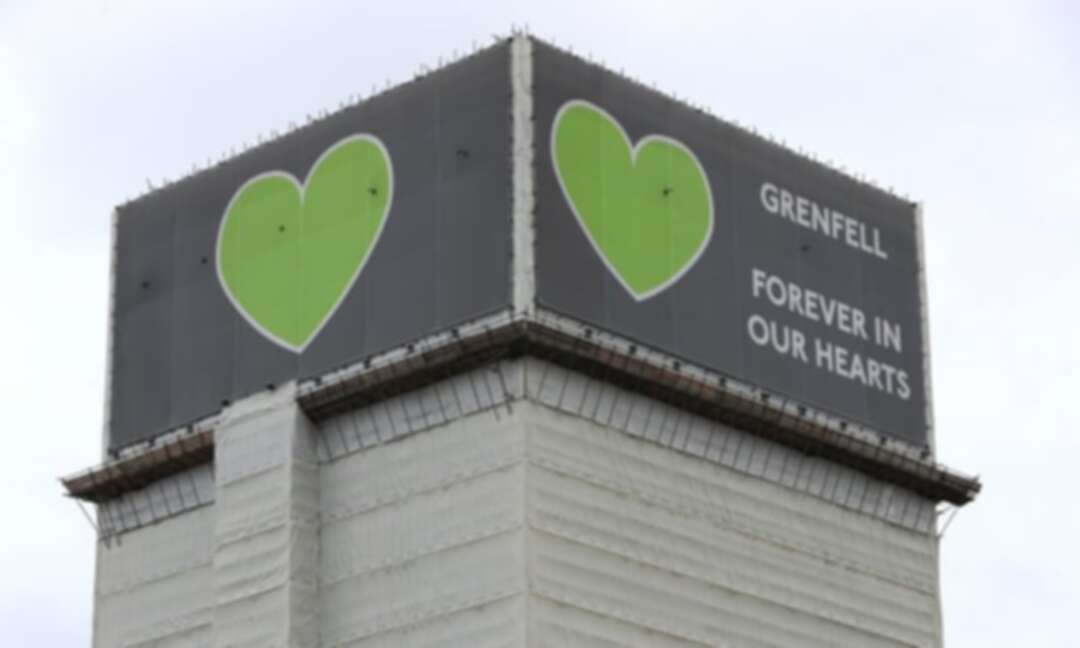-
MPs defeat bid to save leaseholders from huge fire safety bills

Amendments to stop building owners passing on the costs of fixing defects were defeated in a Common vote
Hundreds of thousands of leaseholders living in unsellable and potentially dangerous high-rise homes could be left with fire safety bills of up to £100,000 each after MPs voted against a proposal to protect them from the crippling costs.
Amendments intended to stop building owners passing on the costs of fixing defects were defeated in a Commons vote on Monday evening, after being submitted by the House of Lords. It was backed by Labour, but failed to attract sufficient Tory rebels to pass, and was defeated 322 to 253.
After 72 people were killed in the June 2017 Grenfell Tower fire, safety problems including similar combustible cladding were discovered on thousands of high-rise blocks, leading to bills for private leaseholders estimated by property experts at between £12bn and £20bn. Freehold owners have been holding leaseholders responsible for the payments, leading to standoffs because the bills are often unaffordable.
The government has promised £5bn to replace combustible cladding, but only on buildings over 18 metres in height, and the money does not cover other fire safety defects. That has left leaseholders on shorter blocks with dangerous cladding and people with defective fire doors or missing fire breaks in wall systems with unsellable homes and huge bills.
Sarah Jones, the shadow fire and policing minister, told parliament: “It is taking a heavy toll on people’s mental health and is putting millions of lives on hold.”
She said government opposition to the amendment was a “betrayal of a promise made over 17 times that leaseholders should not be left to foot the bill”.
The protection for leaseholders was originally proposed by Stephen McPartland, a Conservative backbencher, who said that to require them to pay was “morally unacceptable”. He told parliament some residents faced bankruptcy and homelessness. Another Tory rebel, Royston Smith, said: “If this bill becomes law, we will be abandoning hundreds of thousands of innocent people, and I am not going to have that on my conscience.”
But Chris Pincher, the housing minister, said the amendment could trigger legal action by building owners against the government to reclaim costs, while others could “walk away” from their ownership, making the problem worse.
Paul Afshar of the End Our Cladding Scandal campaign said: “Ministers and two prime ministers have promised countless times that leaseholders should not pay for shoddy construction work, corporate malfeasance and botched government interventions. This evening they broke that promise … They failed to listen to common sense and the moral arguments. We are disappointed – and we are angry.”
People affected by the vote include Julie Frasier, 58, who bought a two-bed flat in the Decks complex in Runcorn for £75,000. Her block is clad in combustible panels, but because her building is under 18m tall, the replacement costs will not be covered. Inspections also revealed missing firebreaks, flammable pipe insulation and poorly fitted fire doors, which are not covered by the fund.
“The figures that have been thrown around are anything between £30,000 and £40,000 per leaseholder,” she said. “It’s dreadful. I don’t have another £40k to throw at the building. I may well have to go bankrupt. It is incredibly worrying. Financially, I will just be crushed.”
The insurance premium of the building rose last year from £33,000 to £504,000. The builder, Taylor Wimpey, has announced a £125m fund to replace cladding, but it no longer owns the freehold, making it unclear whether residents will benefit.
There are about 700,000 private leasehold flats in England over 11 metres in height that require safety certification before the flats can be sold, according to the government’s estimates. Only a minority of these are covered by the government’s £5bn fund.
Lilli Houghton, 26, an accountant who bought her two-bedroom property in Leeds in 2018, said she cannot sell due to fire safety faults and is considering putting her planned wedding on hold as a result. The building is wrapped in combustible cladding, which is going to cost £8m to repair, and there are also missing firebreaks in the walls and timber balconies. The insurance has risen from £57,000 a year to £254,000. The cladding costs should be covered by government grants, but the other faults will not be.
“We need comfort this nightmare will be over,” she said. “At the moment it depends on every leaseholder being able to foot the bill for thousands of pounds. It is a hard thing to know I am stuck here for the foreseeable future.”
Poppy, a primary school teacher who lives in a shared-ownership flat in a south London development affected by fire safety problems, said: “The whole thing is a mess. It’s incredibly anxiety-inducing, especially when you have three such young children. The thought of being made bankrupt at the age of 34 makes me feel sick.”
source: Robert Booth
Levant
You May Also Like
Popular Posts
Caricature
BENEFIT Sponsors Gulf Uni...
- April 17, 2025
BENEFIT, the Kingdom’s innovator and leading company in Fintech and electronic financial transactions service, has announced its sponsorship of the “Innovation and Sustainable Technology Solutions Competition (GU - IST Solutions), hosted by Gulf University at its main campus.
This strategic sponsorship reflects BENEFIT’s active role in advancing technological innovation and fostering sustainable solutions to future challenges. It also seeks to empower Bahraini youth by enhancing their skills, capabilities, and competitiveness in innovation and solution development—contributing meaningfully to the broader goals of sustainable development across all sectors.
As part of BENEFIT’s active involvement in the competition, the company has announced that Hanan Abdulla Hasan, Senior Manager of Public Relations and Communication, will serve on the competition’s supervisory committee. Her upcoming participation reflects BENEFIT’s forward-looking commitment to championing academic and professional excellence.
Commenting on the occasion, Hanan Abdulla Hasan, Senior Manager of Public Relations and Communication at BENEFIT, said, “We are privileged to support this pioneering initiative, which aligns seamlessly with BENEFIT’s enduring commitment to fostering innovation and nurturing the potential of Bahrain’s youth. Our participation is rooted in a deep sense of social responsibility and a firm belief in the pivotal role of innovation in shaping a sustainable future. Through such platforms, we seek to empower the next generation with the knowledge, skills, and foresight required to develop impactful solutions that address future challenges, in line with the United Nations Sustainable Development Goals 2030.”
Dr. Aseel Al Ayash Dean of the College of Engineering in Gulf University commented, “We extend our sincere gratitude to BENEFIT for their generous sponsorship and support of the Innovation and Sustainable Technology Solutions Competition. This contribution plays an instrumental role in helping us achieve the strategic goals of this initiative, namely, cultivating a culture of innovation and sustainability, encouraging efforts that address the imperatives of sustainable development, and enhancing the practical and professional capabilities of our students and participants.”
The event will bring together a diverse spectrum of participants, including secondary school students, university undergraduates, engineers, industry professionals, entrepreneurs, academic researchers, and subject matter experts representing a wide range of disciplines.
The competition seeks to inspire participants to develop and present innovative, sustainable technologies aimed at addressing pressing environmental, social, and economic challenges. It encourages the formulation of business models that integrate advanced technological solutions with core principles of sustainability. Moreover, it serves as a platform for emerging leaders, entrepreneurs, and innovators to contribute to the advancement of the Sustainable Development Goals, promote the ethos of responsible technology, and demonstrate its transformative potential across various sectors.
Attendees will have the opportunity to view a series of project presentations submitted by participants, covering diverse areas such as eco-friendly product design, smart and sustainable innovations, renewable energy technologies, water conservation and management, waste minimisation and recycling, green architectural solutions, and sustainable transportation systems. Outstanding projects will be formally recognised and awarded at the conclusion of the event.
opinion
Report
ads
Newsletter
Subscribe to our mailing list to get the new updates!






















